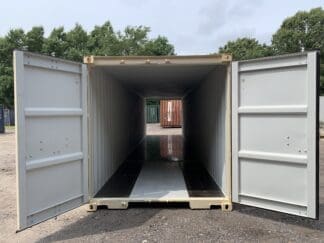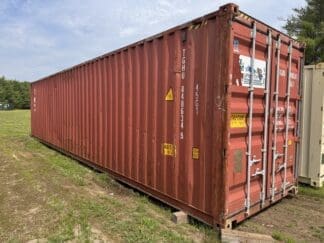Buyers Guide to Used Shipping Containers
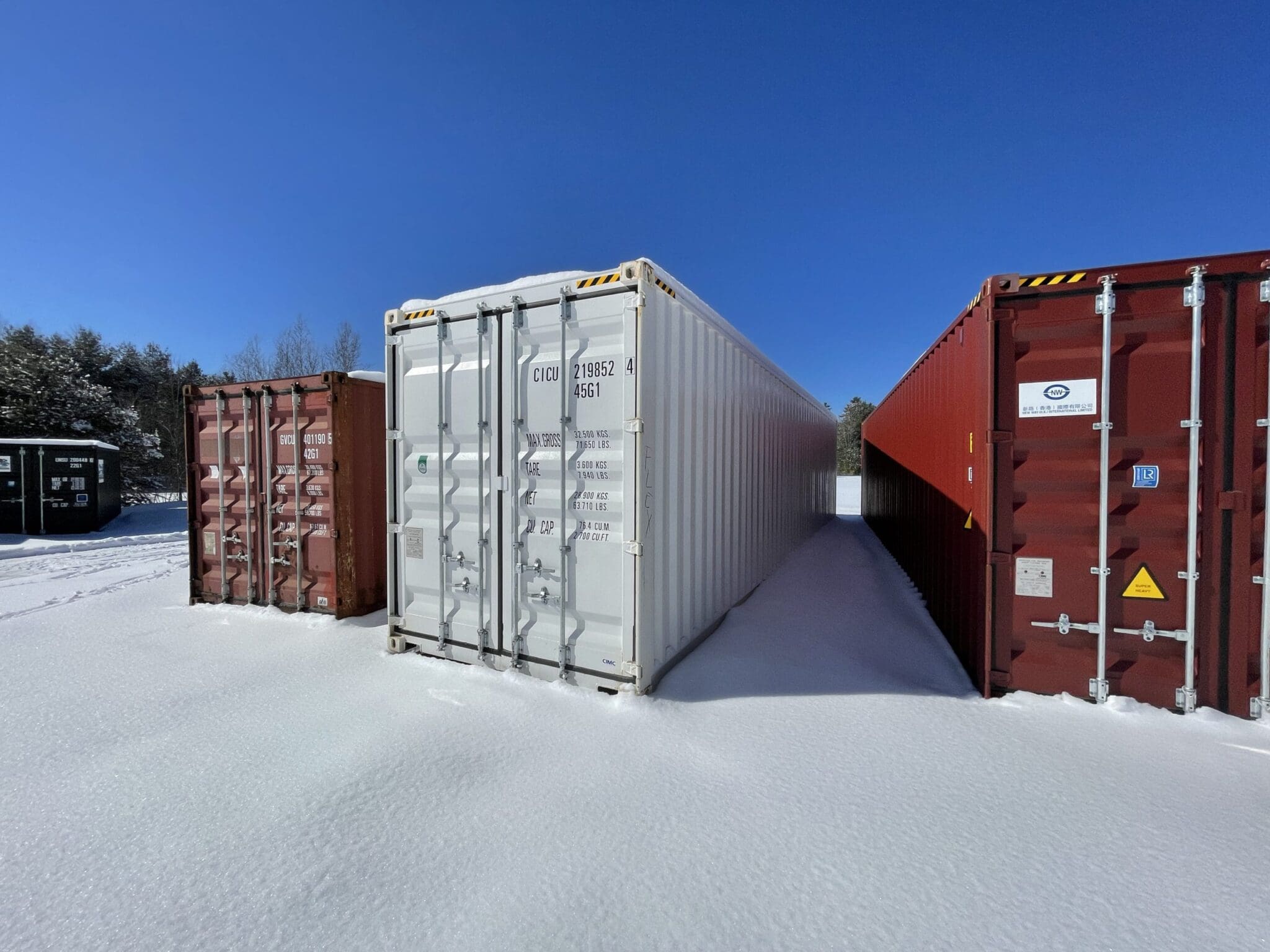
Used shipping containers can provide great value in their use, but businesses and consumers often do not know what to look for when they are trying to select the right one for their application. This buyers guide runs over the details you should consider to make sure you pick the optimal one.
Used Shipping Containers | Buy a Used Shipping Container
You can save significant money by purchasing used shipping containers. They often perform the same as new ones. Shipping containers can be used for many purposes, including vehicle storage and gear storage. This industry is no different from other industries. However, it’s important to remember the “caveat emptor” rule (“let the buyer beware”). A savvy buyer will be careful to assess whether the container they are considering buying meets their requirements, or if a different container (or a newer one) would be more suitable. There are many aspects to consider when purchasing a used container; the following are the most important items to think about:
General Appearance of the Shipping Container
It is a personal choice. A rusty, poorly-painted or weatherbeaten shipping container can be a eyesore. One that has had the rust removed has had it repainted will not.
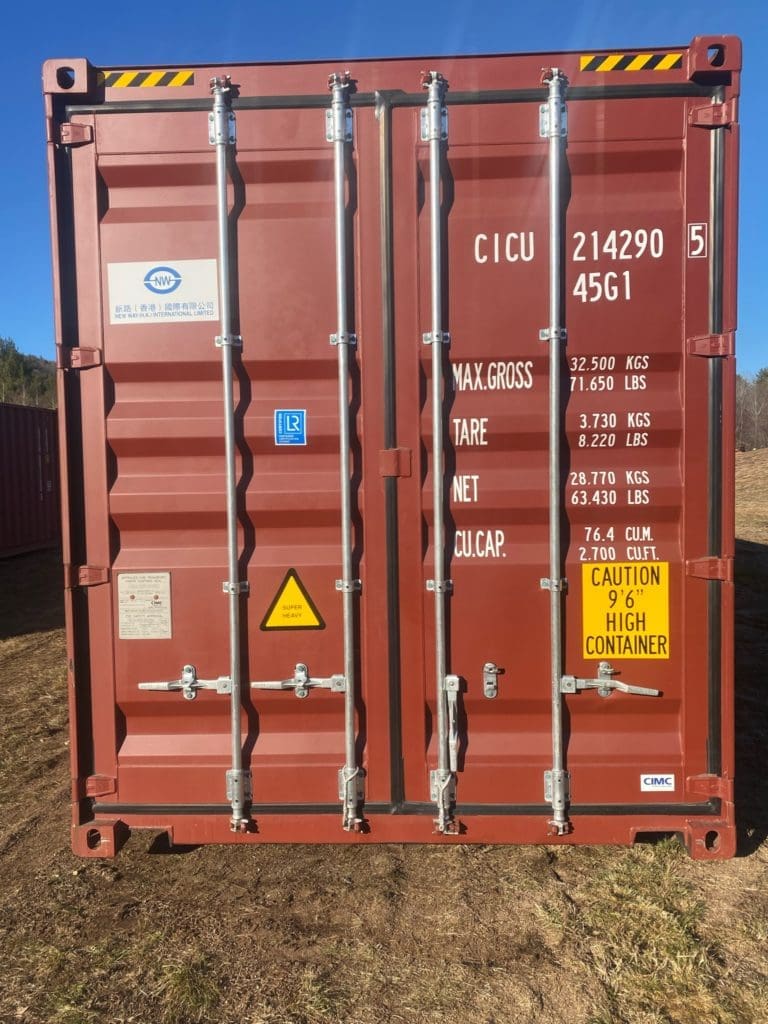 The Shipping Container Doors
The Shipping Container Doors
If you plan to store valuable items, such as tools, on a jobsite, or personal property, swinging doors that lock properly are essential. It could be a problem if the door is not able to open so you can get in the box. A door that does not latch or lock is worse.
The Shipping Container Floor
You must ensure that the flooring will hold up to whatever load you place on it.
Rust Spots on the Shipping Container
This is a very common problem with these containers. A little bit of rust isn’t a big deal but large amounts can eventually rust through the container and cause a hole. It’s also unsightly, so make sure to inspect for rust. However, it is usually possible to remove rust and have it repainted with minimal damage.
Holes in a Shipping Container
Containers that have rust holes all the way through should be considered dangerous, from a structural integrity standpoint.
Dents in a Shipping Container
A dent in a shipping container is not as dangerous as, say, dents in canned food (in that case, the food can develop botulism). However, dents should still be checked, to ensure that they are not large enough or in an important spot that may compromise the structural integrity of the box.
It’s Fit for Purpose
You should ensure that you choose a container that best suits your needs. A 20-foot container, for example, may be the best choice if it can be transported on a flatbed truck. Based on your needs, doors and other features should also be considered.
The Size of the Shipping Container
It might be worth looking into purchasing a container slightly larger than you originally need. It’s frustrating to buy a container, fill it up and then find out that it is just too small for your needs a few months later.
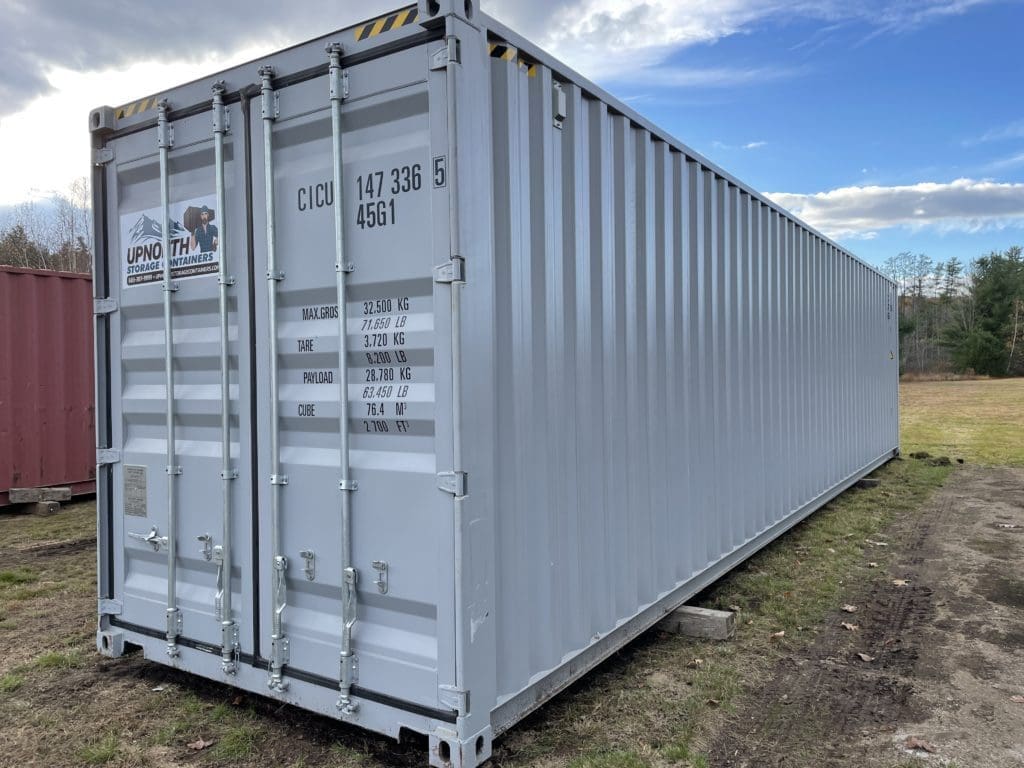 Choose a shipping container company near you
Choose a shipping container company near you
This can help reduce transportation costs. It is rare for people in the Midwest to buy a container from East Coast, for instance because of the prohibitive transport costs. New Hampshire and Vermont in particular are fairly far from shipping ports, which is typically the ultimate source of shipping container inventory that then has to be trucked all the way up to Northern New England, adding to costs.
It doesn’t matter what year it is
People often ask about the age and shape of a container. This is probably because they are influenced by their past experience with shopping for cars. As it turns out, the container’s actual year of manufacture is essentially irrelevant. What is more important is its condition. A container that is only a few years old with a hole and dents in it is not as wise a choice as a 15-year old container that is in good condition.
That Said, a New Container is often a Better Choice
Although it is often a good idea to buy used shipping containers, there are many advantages to buying new ones. Their appearance is often superior. A new container tends not to have dents or scratches and usually has a pleasing color. A new box will not require much effort to repair, as it is usually free from rust and dents. The container is still in its initial phase of life so it will need less maintenance.
New containers also allow you to make a quick selection
It can be very easy to select a new container. Because new containers are so similar, buyers won’t have to spend hours looking at different containers and making mental tradeoffs. You might have to choose between a container with a door that closes awkwardly but has great flooring and one that has great doors but has poor quality floors. This can make it difficult to purchase and make a decision. You can choose a different container if you’re in a rush or don’t feel confident choosing from the various quality options. This will give you peace of mind knowing that you have bought a reliable product.
New containers are more likely to be certified
A container must be certified before it can be used for freight purposes on a shipping vessel. Although most used containers do not have certification, it is possible to obtain certification. However, this may mean that they will need to be repaired or replaced. Containers that are new and only used for one trip (i.e. Containers that have made only one trip overseas since being manufactured are usually already certified. This certification can be checked by inspecting the metal plate at the container’s end.
It is hard to beat the value of buying used shipping containers
However, a used shipping container is a great value if it’s chosen well. You can find a supplier that has several used containers. Then, personally inspect them and choose the one that suits your needs.


